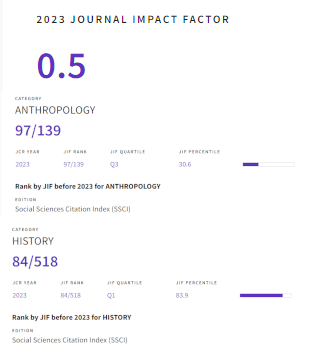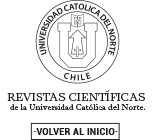Grandes narrativas, pequeños agricultores:
Explorando desbordes académicos en el caso de los excedentes de agua en el valle de Motupe, Perú
DOI:
https://doi.org/10.22199/issn.0718-1043-2019-0029Palabras clave:
agua, agroexportación, pequeña agricultura, caso etnográfico, PerúResumen
En la costa norte del Perú el cultivo de mango de exportación se encuentra en manos de pequeños agricultores, muchos de los cuales cultivan en tierras comunales sin licencias de agua o aprobación oficial para sembrar cultivos perennes. En este artículo presento el caso de los pequeños agricultores del valle de Motupe, conocidos también como los excedentes de agua, ya que sólo tienen acceso a irrigar sus campos en tiempo de abundancia o exceso de agua. Aunque estos pequeños agricultores se consideran desplazados por la agro-exportación moderna, ellos y sus plantaciones de mango han logrado echar raíces en un clima desértico y sector mercantil desfavorable, desafiando no solamente dichas condiciones para hacer agricultura, sino también, el cómo escribir sobre ellos y sus realidades de agua. Es en este último punto donde se concentra el principal aporte del presente trabajo. Inspirado en la teoría del actor red, el artículo presenta alternativas o vías de desborde para situar las ontologías parciales que emergen del caso de estudio como punto de interferencia para conversar o intercambiar con las grandes narrativas y sus aspiraciones holísticas, sin necesidad de sumar a ellas.
Descargas
Referencias
Achterhuis, H., Boelens, R. y Zwarteveen, M. (2010). Water property relations and modern policy regimes: neoliberal utopia and the disempowerment of collective action. Out of the Mainstream: Water Rights, Politics and Identity. London: Earthscan, 27-56.
Bebbington, A. (2009a). Latin America: Contesting extraction, producing geographies. Singapore Journal of Tropical Geography, 30(1), 7-12.
Bebbington, A. (2009b). The new extraction: rewriting the political ecology of the Andes. NACLA Report on the Americas, 42(5), 12-20.
Bebbington, A., y Williams, M. (2008). Water and mining conflicts in Peru. Mountain Research and Development, 28(3), 190-195.
Boelens, R. (2008). The Rules of the Game and the Game of the Rules. Normalization and Resistance in Andean Water Control. Wageningen: Wageningen University.
Boelens, R. y Zwarteveen, M. (2005). The prices and politics of Andean water reforms. Development and Change, 36(4), 735-758.
Boelens, R., Hoogesteger, J., Swyngedouw, E., Vos, J. y Wester, P. (2016). Hydrosocial territories: A political ecology perspective. Water International, 41(1), 1-14.
Bridge G., McCarthy J., Perreault, T. (2015). Introduction. En The Routledge handbook of political ecology (pp. 3-18). London: Routledge.
Callon, M. (1998). An essay on framing and overflowing: economic externalities revisited by sociology. The Sociological Review, 46(S1), 244-269.
De la Cadena, M. (2015). Earth Beings. Ecologies of practice across Andean worlds. Durham y Londres: Duke University Press.
Del Castillo, L. (2013). La comunidad y la irrigación de Olmos: Una relación nada justa. En Aguas Robadas: Despojo Hídrico y Movilización Social (pp. 83-102). Quito y Lima: Abya-Yala, IEP.
Domínguez, C., Verzijl, A. y Zwarteveen, M. (2017). Water footprints and ‘pozas’: Conversations between practices and knowledges of water efficiency. Water, 9(1), 16.
Eguren, F. y Marapi, R. (2015). La agroexportación en el Perú. La Revista Agraria, 173, 7-14.
Erensu S. (2013). Abundance and scarcity amidst the crisis of “modern water”: The changing water-energy nexus in Turkey. En Harris, L. M., Goldin, J. A y Sneddon, C. (Eds.). Contemporary Water Governance in the Global South: Scarcity, Marketization and Participation (pp. 61-78). New York: Routledge.
Clifford, J. y Marcus, G. E. (1991). Retóricas de la antropología. Madrid: Jucar.
Fletcher, R. (2007). Beyond resistance: The future of freedom. New York: Nova Science Publishers.
Green, L. (2013). Contested ecologies: dialogues in the south on nature and knowledge. Arizona University Press.
Haraway, D. (1991). Cyborg Manifesto: Science, Technology, and Socialist-Feminism in the Late Twentieth Century. En Simians, Cyborgs and women: The reinvention of nature (pp. 149-181). New York: Routledge.
Hatch, J. K. (1974). The corn farmers of Motupe: a study of traditional farming practices in northern coastal Peru. Madison (WI): Wisconsin University.
Hepworth, N., Postigo, J., Delgado, B. y Kjell, P. (2010). Drop by drop: Understanding the impacts of the UK’s water footprint through a case study of Peruvian asparagus. London: Progressio.
Kwa, C. (2002). Romantic and baroque conceptions of complex wholes in the sciences. Complexities: social studies of knowledge practices (pp. 23-52). Durham, NC: Duke University Press.
Law, J. y Mol, A. (2002). Complexities: Social studies of knowledge practices. Durham, NC: Duke University Press.
Law, J. (1994). Organizing modernity. Oxford: Blackwell.
Law, J. (2004). And if the global were small and noncoherent? Method, complexity, and the baroque. Environment and Planning D: Society and Space, 22(1), 13-26.
Law, J. (2008). On sociology and STS. The sociological review, 56(4), 623-649.
Lynch, B. (2013). River of contention: scarcity discourse and water competition in highland Peru. Ga. J. Int’l & Comp. L. (42) 69-92
Mayer, E. (2009). Ugly stories of the Peruvian agrarian reform. Durham, NC: Duke University Press.
Martinez-Alier, J. (2003). The Environmentalism of the poor: a study of ecological conflicts and valuation. Edward Elgar Publishing. eISBN: 978 1 84376 548 6
Mehta, L. (2007). Whose scarcity? Whose property? The case of water in western India. Land Use Policy, 24(4), 654-663.
Mena-Vásconez, P., Boelens, R. y Vos, J. (2016). Food or flowers? Contested transformations of community food security and water use priorities under new legal and market regimes in Ecuador’s highlands. Journal of Rural Studies, 44, 227-238.
Mol, A. (1999). Ontological politics. A word and some questions. En Law, J. y Hassard, J. Actor network theory and after (pp. 74-90). Oxford: Blackwell.
Mol, A. (2002). The body multiple: Ontology in medical practice. Durham, NC: Duke University Press.
Mol, A. (2013). Exemplary: The case of the farmer and the turpentine. Consultado 4.02.2017 en http://somatosphere.net/2015/06/exemplary-the-case-of-the-farmer-and-the-turpentine.html
Mol, A. (2016). Claufotis as a composite: On hanging together felicitously. En Modes of Knowing: Resources from the Baroque. Manchester: Mattering Press.
Morita, A. (2014). The ethnographic machine: Experimenting with context and comparison in Strathernian ethnography. Science, Technology, & Human Values, 39(2), 214-235.
Nash, J. (1981). Ethnographic aspects of the world capitalist system. Annual Review of Anthropology, 10(1), 393-423.
Neumann, R. P. (2009). Political Ecology. En International Encyclopedia of Human Geography (pp. 228-233). Oxford: Elsevier.
Oré, M. T. y Rap, E. (2009). Políticas neoliberales de agua en el Perú. Antecedentes y entretelones de la ley de recursos hídricos. Debates en Sociología, 34.
Ortner, S. B. (1984). Theory in Anthropology since the Sixties. Comparative studies in society and history, 26(1), 126-166.
Perreault, T. (2013). Dispossession by Accumulation? Mining, Water and the Nature of Enclosure on the Bolivian Altiplano. Antipode, 45(5), 1050-1069
Perreault, T. y Martin P. (2005). Geographies of neoliberalism in Latin America. Environment and Planning A, 37, 191-201.
Roa-García, M. C., Urteaga-Crovetto, P. y Bustamante-Zenteno, R. (2015). Water laws in the Andes: A promising precedent for challenging neoliberalism. Geoforum, 64, 270-280.
Rose, M. (2002). The seductions of resistance: power, politics, and a performative style of systems. Environment and Planning D: Society and Space, 20(4), 383-400.
Scott, J. C. (1985). Weapons of the weak: everyday forms of peasant resistance. New Haven, CT: Yale University Press.
Scott, J. C. (1990). Domination and the arts of resistance: Hidden transcripts. New Haven, CT: Yale University Press.
Seemann, M. (2016). Inclusive recognition politics and the struggle over hydrosocial territories in two Bolivian highland communities. Water International, 41(1), 157-172.
Sosa, M. y Zwarteveen, M. (2012). Exploring the politics of water grabbing: the case of large mining operations in the Peruvian Andes. Water Alternatives, 5(2), 360.
Stensrud, A. B. (2016). Dreams of growth and fear of water crisis: the ambivalence of “progress” in the Majes-Siguas Irrigation Project, Peru. History and Anthropology, 27(5), 569-584.
Strathern, M. (2004). Partial connections. Rowman Altamira.
Urteaga, P. (2016). Between Water Abundance and Scarcity: Discourses, Biofuels, and Power in Piura, Peru. Antipode, 48(4), 1059-1079.
Van der Ploeg, J. D. (2006). El futuro robado. Tierra, agua y luchas campesinas. Lima: Instituto de Estudios Peruanos.
Van der Ploeg, J. D. (2009). The new peasantries: struggles for autonomy and sustainability in an era of empire and globalization. London: Routledge.
Van der Ploeg, J. D. (2010). The peasantries of the twenty-first century: the commoditisation debate revisited. The Journal of Peasant Studies, 37(1), 1-30.
Vera, J. y Zwarteveen, M. (2008). Modernity, exclusion and resistance: Water and indigenous struggles in Peru. Development, 51(1), 114-120.
Vera, J. y Vincent, L. (2013). Community Irrigation Supplies and Regional Water Transfers in the Colca Valley, Peru. Mountain Research and Development, 33(3), 195-206.
Verzijl, A. (2007). Derechos de agua y autonomía local. Un análisis comparativo de los Andes peruanos y los Alpes suizos. Lima: IEP.
Verzijl, A. y Domínguez, C. (2015). The powers of water-user associations. On multiplicity, fluidity and durability in the Peruvian Andes. International Journal of the Commons, 9(1), 107-128.
Vos, J. (2002). Metric-Matters. The performance and organisation of volumetric water control in large-scale irrigation in the North Coast of Peru. Wageningen: Wageningen University.
Vos, J. y Vincent, L. (2011). Volumetric water control in a large-scale open canal irrigation system with many smallholders: The case of Chancay-Lambayeque in Peru. Agricultural Water Management, 98(4), 705-714.
Vos, J. y Boelens, R. (2014). Sustainability standards and the water question. Development and Change, 45(2), 205-230.
Vos, J. e Hinojosa, L. (2016). Virtual water trade and the contestation of hydrosocial territories. Water International, 41(1), 37-53.
Wolf, E. (1966). Peasants. Englewood Cliffs, NJ: Prentice-Hall.
Wolford, W. y Keene, S. (2015). Social Movements. En The Routledge handbook of political ecology (pp. 573 -584). UK: Routledge.
Yates-Doerr, E. y Labuski, C. (2015). The bookCase: Introduction. Consultado 4.02.2017 en http://somatosphere.net/2015/06/the-bookcase-introduction.html.
Yates-Doerr, E. (2017). Where is the local? Partial biologies, ethnographic sitings. HAU: Journal of Ethnographic Theory, 7(2), 377-401.
Zwarteveen, M. Z. y Boelens, R. (2014). Defining, researching and struggling for water justice: Some conceptual building blocks for research and action. Water International, 39(2), 143-158.
Descargas
Publicado
Número
Sección
Licencia
Todos los trabajos publicados en Revista Estudios Atacameños (eISSN:0718-1043) están sujetos a una licencia Creative Commons Reconocimiento 4.0 Internacional
Los autores continúan como propietarios de sus trabajos, y pueden volver a publicar sus artículos en otro medio sin tener que solicitar autorización, siempre y cuando indiquen que el trabajo fue publicado originariamente en Revista Estudios Atacameños (eISSN:0718-1043).












